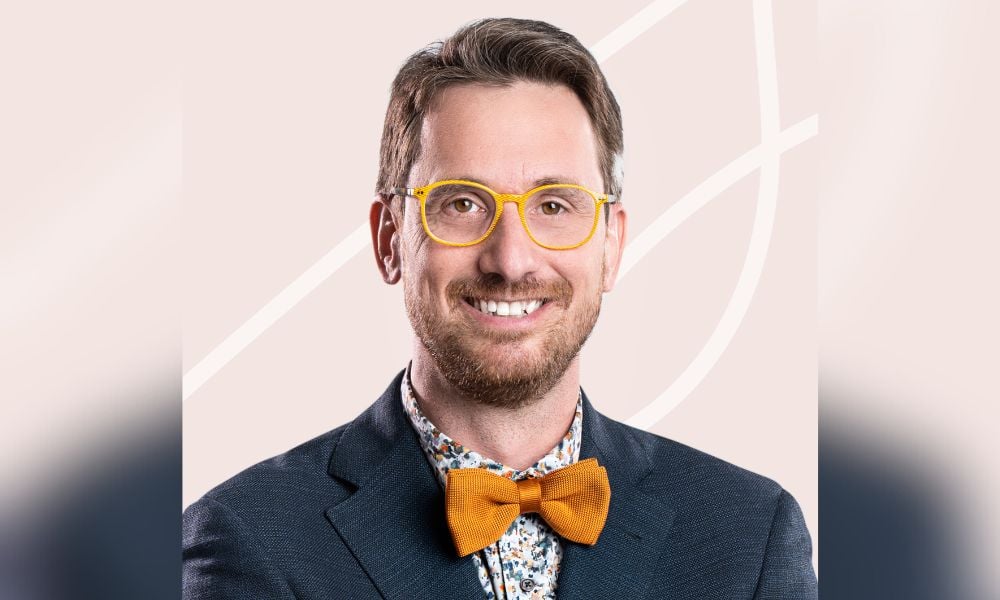Benoit Yelle says ChatGPT and quantum computing raise copyright issues

Benoit Yelle recently asked ChatGPT to draw up a patent application.
“The good thing is – pretty sure that my job is I'm okay for the next little while. The quality is not there yet.”
Yelle, a patent agent and partner at Lavery in Montreal, says that ChatGPT and other generative AI will change the work that intellectual property professionals do on a day-to-day basis by eliminating some of the more tedious work and allowing them to direct their energies into enhancing services.
“Our job is going to change,” he says. “I think the more trivial aspects of our job as lawyers and as professionals in IP will change because we're not going to focus as much energy on reviewing a contract to see the differences between that version and this version.”
“Hopefully, it will elevate what we provide in terms of value.”
Yelle says the most significant risk for a company using generative AI, such as ChatGPT, is lack of control. The tool is so pervasive that it is difficult to know whether employees are using it. That connects with another risk: the uncertainty around the intentions of the companies, such as OpenAI, who are producing the tools.
“First and foremost, this is a software that we're using in accordance with a license that we agree to,” he says. “But we don't always read those things; we just agree to the terms and conditions and move on.”
While a person could be using a tool the way they believe it is meant to be used, the licensor or provider of the software may have a different purpose in mind. “That's the bigger risk, in my mind: not using the software how it's supposed to be used, and then you're exposing yourself to unknown territory.”
ChatGPT, the AI-driven natural language processing tool, raises two intellectual-property-related issues, says Yelle.
The first is whether ChatGPT’s users can use the tool’s output without treading onto copyrighted territory. The prevailing view is that copyright does not apply to the end product because it is provided by an anonymized source that cannot be attributed to an author. But the other view is that the person who wrote the code owns the output. “That’s probably less likely, but you just never know… there is uncertainty there,” he says.
The other issue is whether ChatGPT, itself, is infringing on copyright.
“At this point, it looks like what Chat GPT is doing is not really, clearly copyright infringement,” says Yelle. “But it remains to be seen if people with a lot of valuable copyright will try to find an angle.”
Yelle began his career as a computer engineer but was not interested in coding software applications for the rest of his life. Still fascinated by science and innovation, he got into patents and spent a decade at Ericsson, the Swedish telecommunications giant, before moving into private practice. Yelle’s been at Lavery since September 2022.
His daily tasks include dealing with inventors, drafting patent applications, and discussing with companies how they can protect their intellectual property.
Yelle’s work with quantum computing mainly involves the protection of algorithms via patents and trade secrets. He says the technology is “beginning to be interesting” but is not yet at the point that it is broadly available and disruptive in the market. “But it’s coming.”
Yelle says many IP-law questions in this area arise between those providing a quantum computing platform and those using it.
“From an IP perspective, there is a lot to say about the relation between those two parties. The fact that you could be developing new IP on someone else's platform is also an interesting aspect.”










